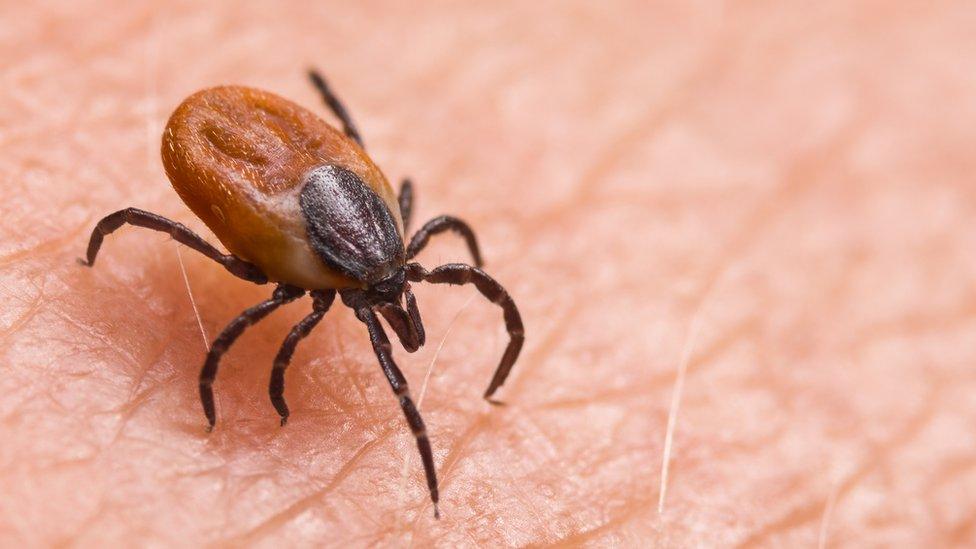Tick germ risk should be mapped, according to GP
- Published
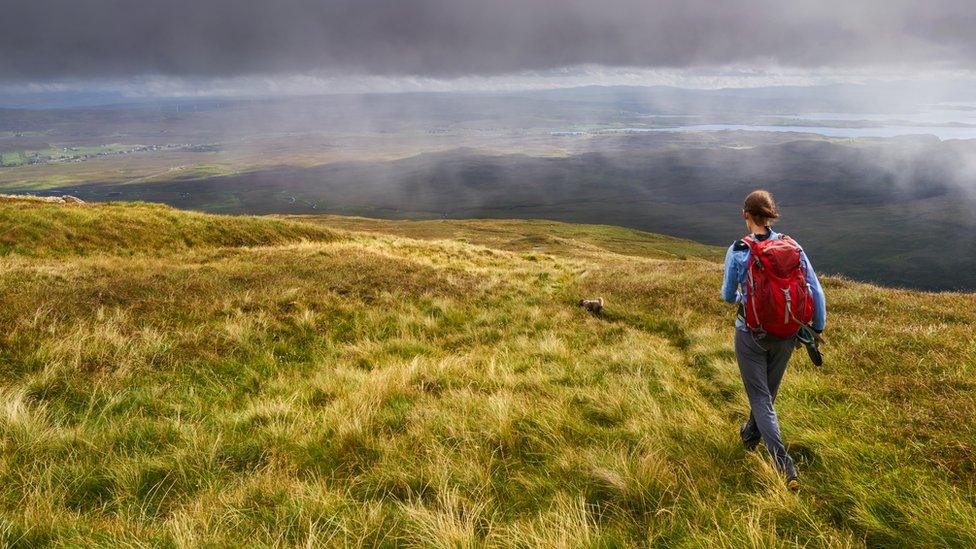
The Scottish Highlands is among places people are likely to encounter ticks
Tick-borne diseases in Scotland should be mapped in a similar way to avalanche hazards, an expert has suggested.
The tiny spider-like creatures can spread viral and bacterial infections - including Lyme disease - to humans.
Dr James Douglas, a Fort William-based GP who also works in Lyme disease research, said ticks in particular areas should be regularly sampled.
He said the results could be used to create a resource similar to the Scottish Avalanche Information Service.
The service provides forecasts on avalanche hazards for six mountain areas, external.
Dr Douglas' call follows a warning of the presence of of tick-borne encephalitis in the UK. The virus is rare and most people do not develop symptoms, but swelling to the brain is possible.
Sampling of ticks has been carried out before, but the GP said the testing was sporadic.
He said: "Longer term we need systematic analysis a bit like the avalanche service in winter time.
"We need a similar sort of service that's sampling the ticks all the time in particular areas so we know what germs are in the ticks and how we deal with them."
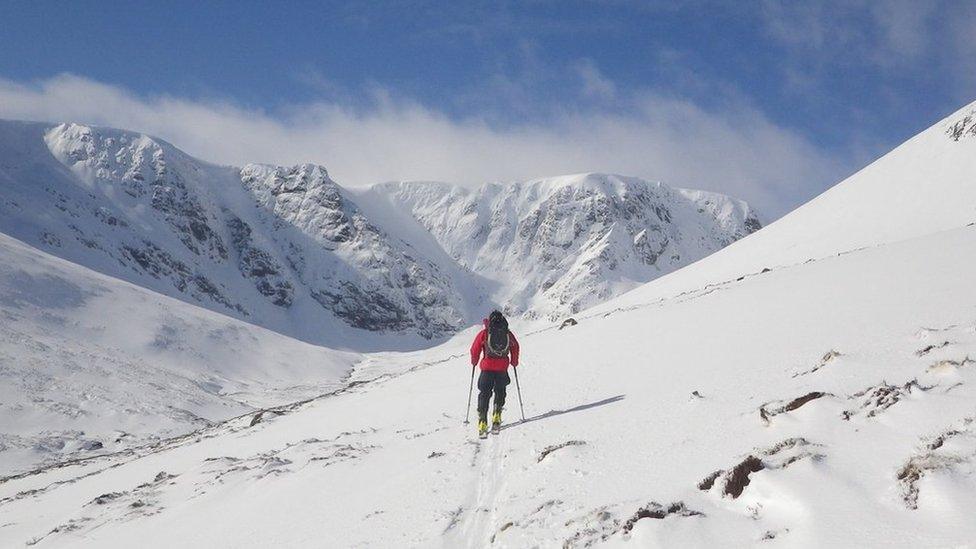
The Scottish Avalanche Information Service makes hazard assessments in six mountain areas
Ticks are usually active from early spring to late autumn, but there have been warnings they have become a year-round risk.
They can be found in public parks and even gardens, though traditionally "high-risk" places for ticks include grassy and wooded areas in southern and northern England and in the Scottish Highlands, according to the NHS.
There have also been concerns about high tick numbers in parts of the Western Isles.
Not all tick bites result in an infection, and the diseases are treatable if caught early.
Dr Douglas said people should familiarise themselves with how to safely remove ticks. Public Health Scotland, external is among organisations offering information on dealing with tick removal and health concerns.
The GP said gardeners, dog walkers and forestry workers were among those most likely to encounter ticks, and urged them to regularly check themselves for ticks.
Related topics
- Published2 December 2022
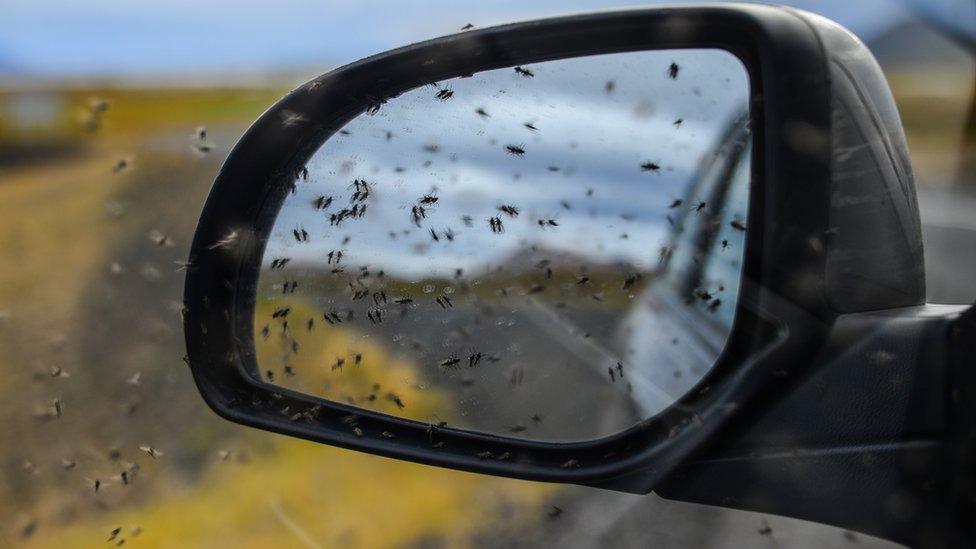
- Published5 April 2023
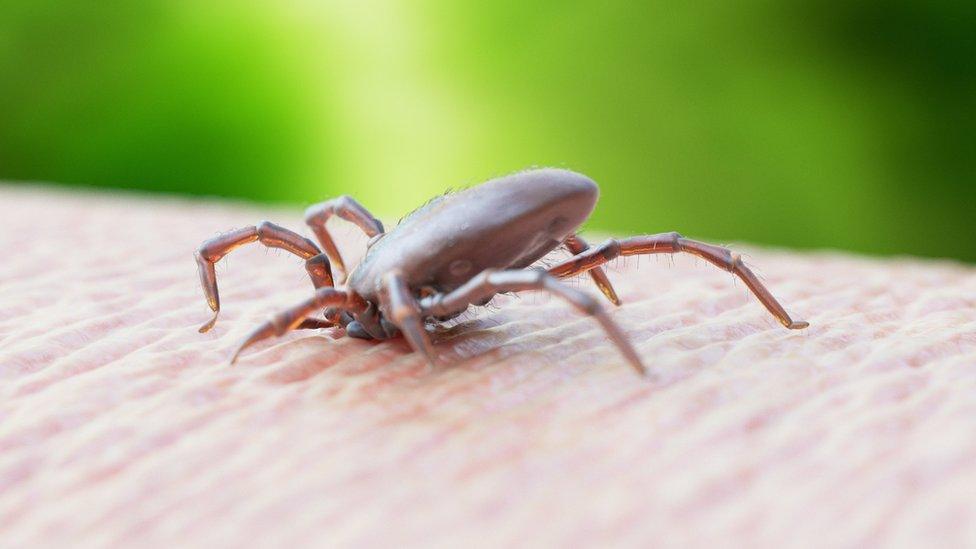
- Published1 June 2022
